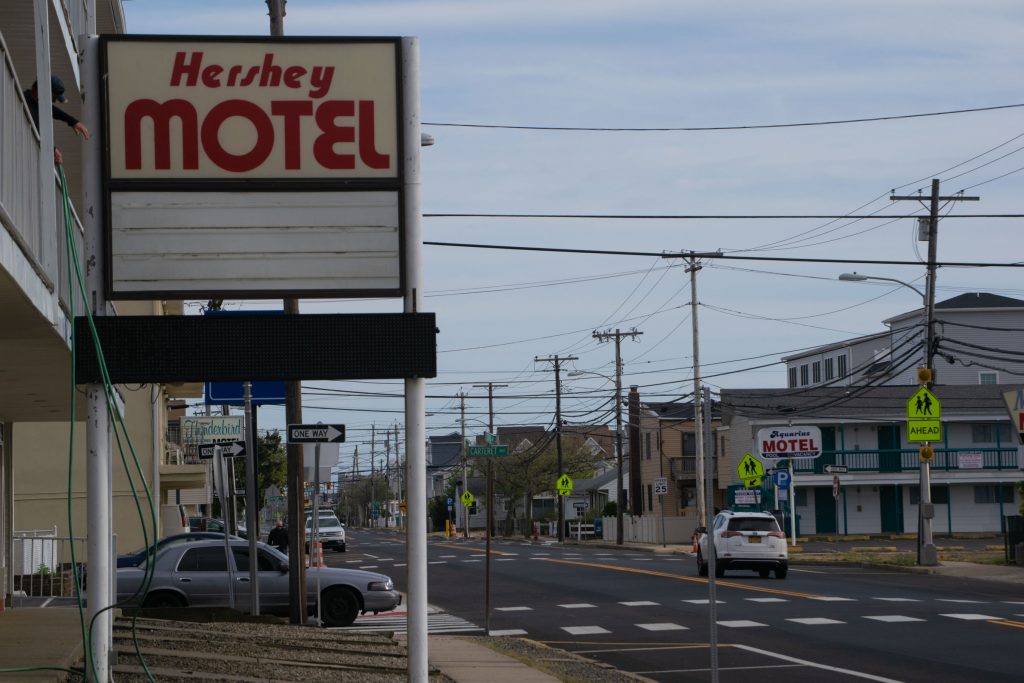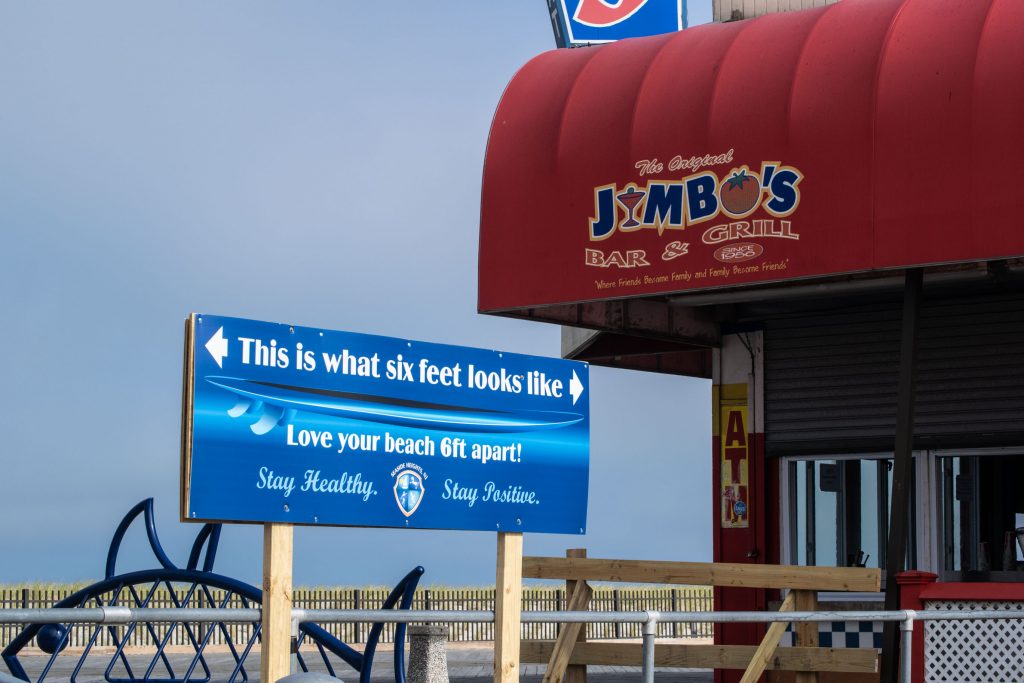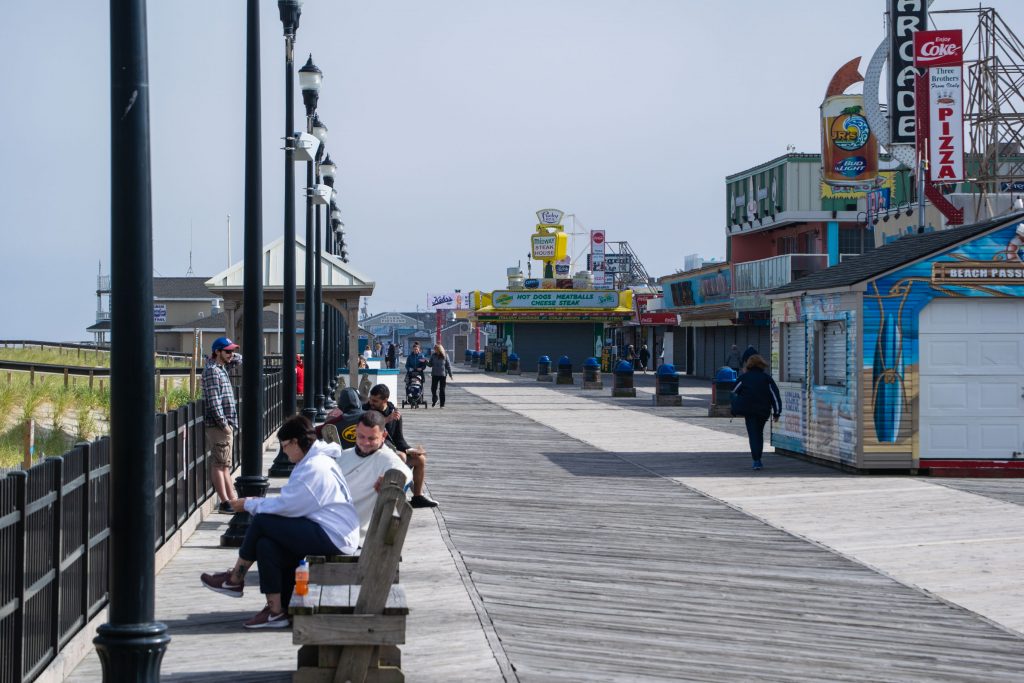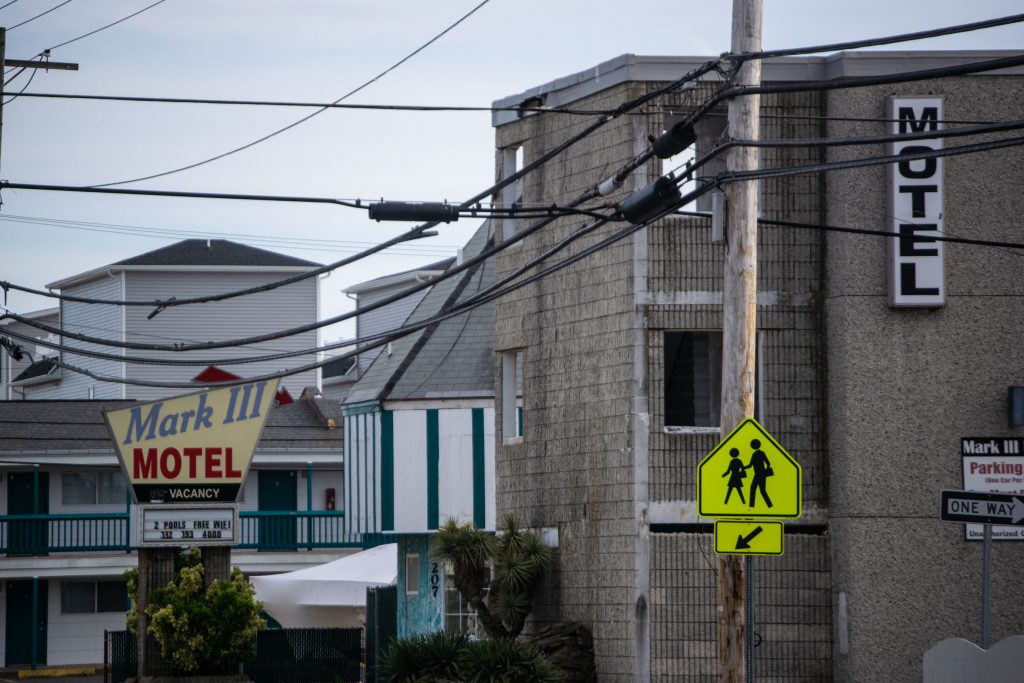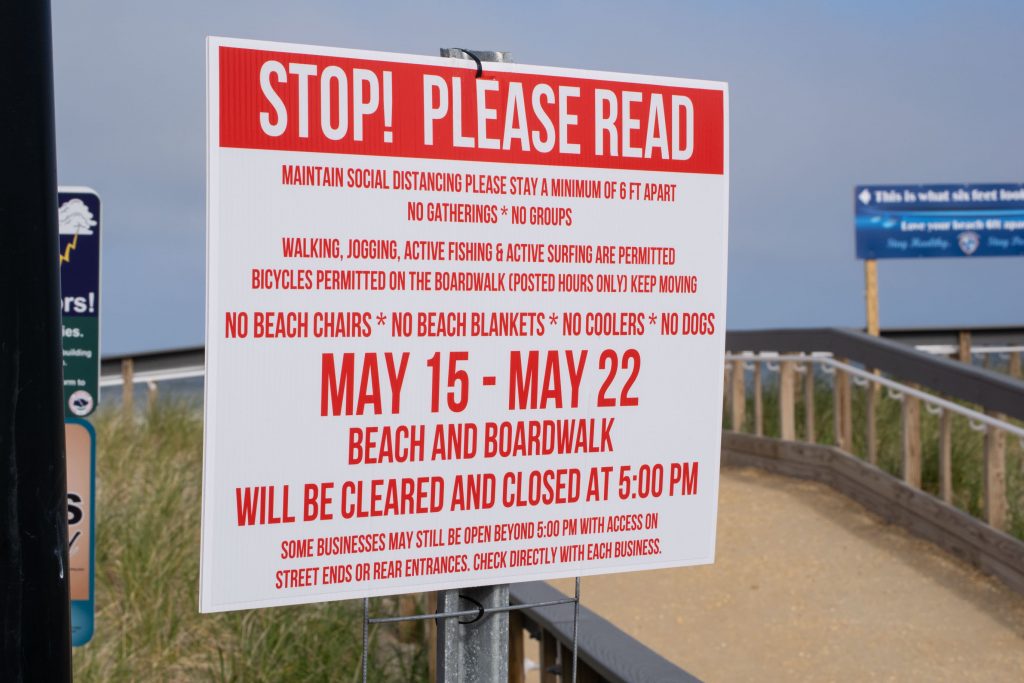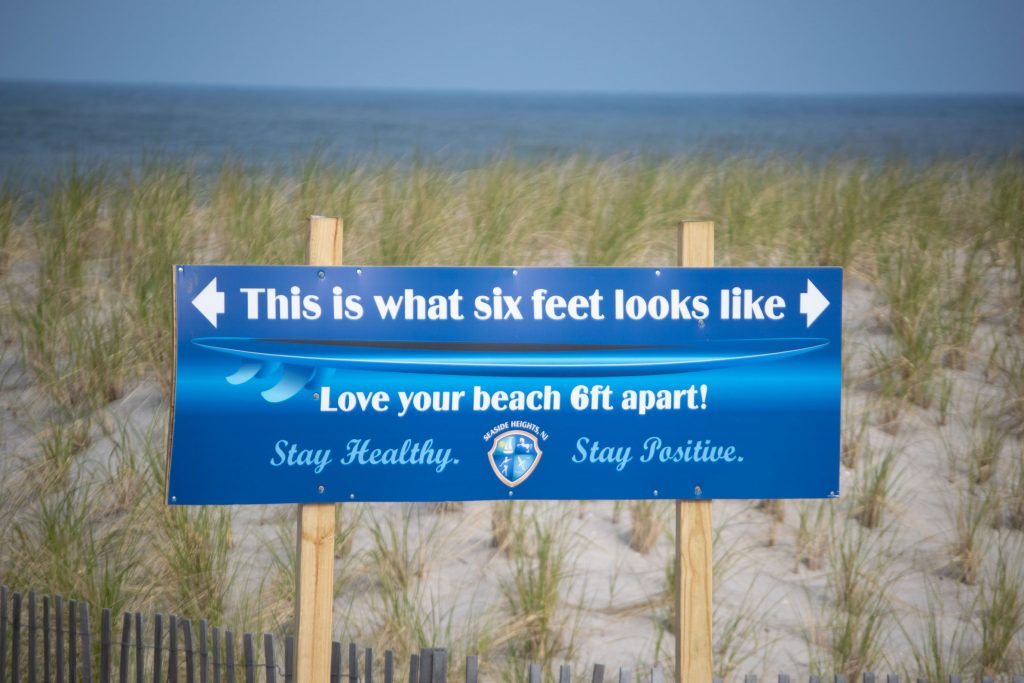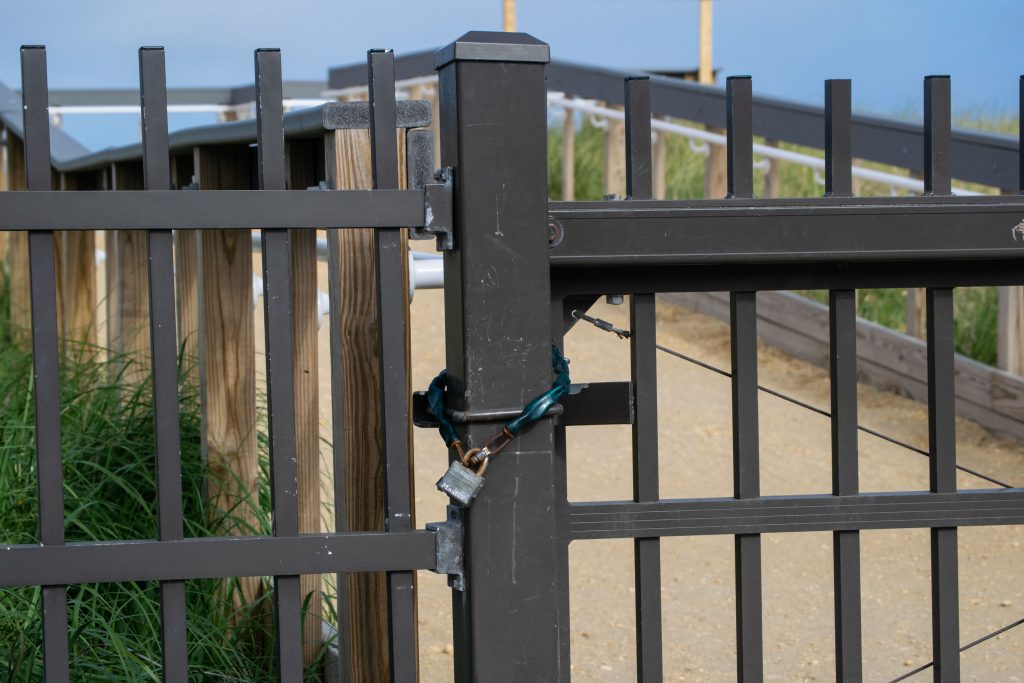Butch Heffernan usually prepares for the early summer season by getting his Seaside Heights motel in top shape before Memorial Day weekend arrives. This year, he was writing checks.
“Today, I was writing checks to 36 different parties, returning their deposits in full,” said Heffernan, and that covers just one solitary weekend.
Seaside Heights motel owners say the borough’s cap on capacity could run them out of business. The policy is driven by a state directive that requires a limitation on the number of dwelling units that can be rented under Gov. Phil Murphy’s social distancing orders. In some towns where there are few motel rooms compared to condominiums and single-family homes, motels can operate at a high capacity. But in Seaside Heights, where blocks of motels make up hundreds of dwelling units, the cap means that a higher proportion of rooms cannot be legally rented. To comply with the state’s cap, for the remainder of May, no motels room rentals are allowed. Beginning June 1, 25 percent of rooms can be rented, and the town hopes to bump the number to 50 percent either June 30 or sooner, depending on issues ranging from police staffing to the status of coronavirus spread.
“Most of my June rentals have disappeared,” said Jeff Loundy, owner of the Sunrise Motel on the Boulevard. Upon hearing of closures, his customer base has dwindled, he told the borough’s mayor and council during a meeting last week. “So to get to 50 percent in my capacity, I don’t know how it’s possible.”
Steve Whalen, co-owner of the famous Lucky Leo’s arcade, said he visited Florida recently and witnessed their first-stage of reopening, and fears it may be too late to salvage the 2020 season at the Jersey Shore.
“It’s wide open, but I have to tell you, I’ve been out to dinner and lunch two or three times, and they missed their season,” said Whelan. “We haven’t gone into a place yet that was 50 percent full. I sure hope we don’t miss our season.”
The borough’s business owners pleaded for tax relief since they cannot legally open. Lucky Leo’s is closed completely under the governor’s executive order shutting down amusement arcades, and the motel owners say they might not be able to pay their bills with just a quarter or a half number of rooms available. New Jersey business owners, they agreed, face the nation’s highest property tax burden – and this year, their property cannot turn a profit. The fear is that mortgages will go unpaid and tax bills will pile up with an 18 percent interest rate once they reach $1,500 and the debt is sold at a tax sale.
“We’re paying taxes for 12 months, and we’re being restricted from renting for one quarter of the year,” said Heffernan. “Is Seaside Heights going to adjust the tax bill so we’re not paying taxes on a time period we’re not able to be open?”
The short answer is no. Under state statute, tax assessments can only be lowered through a tax appeal. Individual businesses cannot be targeted for tax relief. Even the 18 percent interest rate on overdue taxes sold at auction, which is set by the borough, cannot be lowered since Seaside Heights receives state aid and must receive permission from Trenton before taking financial actions.
“We could ask, but I have to tell you the truth, I don’t think they would ever approve it,” Mayor Anthony Vaz said, of the prospect of lowering the interest rate.
Vaz said the state imposed occupancy limitations, but did not provide a template on how they would play out. Seaside Heights is one of a handful of communities with a boardwalk and major resort zone, which has brought extra state scrutiny. Due to the pandemic, the small army of special police officers that are normally hired for the summer never received training, and are only now preparing to work. Lifeguard operations must adapt to social distancing requirements on beaches, and the town must be able to control overcrowding on the boardwalk by potentially closing it on days that are deemed too busy for social distancing to take place.
“It’s not one-size fits all because we’re in a unique situation – the boardwalk, the Boulevard, and we don’t know how things will go,” said Vaz. “They would like 100 percent, and I would love 100 percent, but then, why are we doing any of this? Because there are restrictions from the state.”
Vaz said there is a possibility that the 25 percent occupancy cap could be expanded to 50 percent before June 30, but it depends on a confluence of all the factors the town is dealing with.
“We’ll feel it out and see how many people are coming down,” he said. “The governor says we can’t open up at 100 percent, but he’s leaving [specifics] to the communities.”
Heffernan doesn’t know if he can weather a financial storm that is arguably worse than Superstorm Sandy’s impact in 2012.
“We were just barely getting to where we were before Sandy, and now we’re being restricted from operating our properties, generating an income, paying our taxes,” he said, predicting dire consequences. “There are going to be an abundance of people that will be more than $1,500 in arrears. You’re going to have a great number of bankruptcies. I don’t say that lightly, but you better be prepared for it, because bankruptcies are going to be at an all-time high in Seaside Heights.”
“Be ready, because the bankruptcies will be flying.”

Advertisement

Ortley Beach & North Beaches
Landmark Ortley Beach Breakfast Spot Looks to Expand

Ortley Beach & North Beaches
‘Temporary’ 70-Foot Cell Tower on Route 35 in Ocean Beach OK’d to Return

Seaside Heights & Seaside Park
Beloved South Seaside Park Restaurant Will Remain Open As Developer Seeks to Demolish Block

Seaside Heights & Seaside Park
In Seaside Heights, A $50M Flagship Building Rises Over the Boulevard in a Famed Location

Police, Fire & Courts
Ocean County Sheriff Establishes Drone Command Center in Seaside Heights Amid New Video

